The Performances
The General Prologue of the Canterbury Tales (Geoffrey Chaucer)
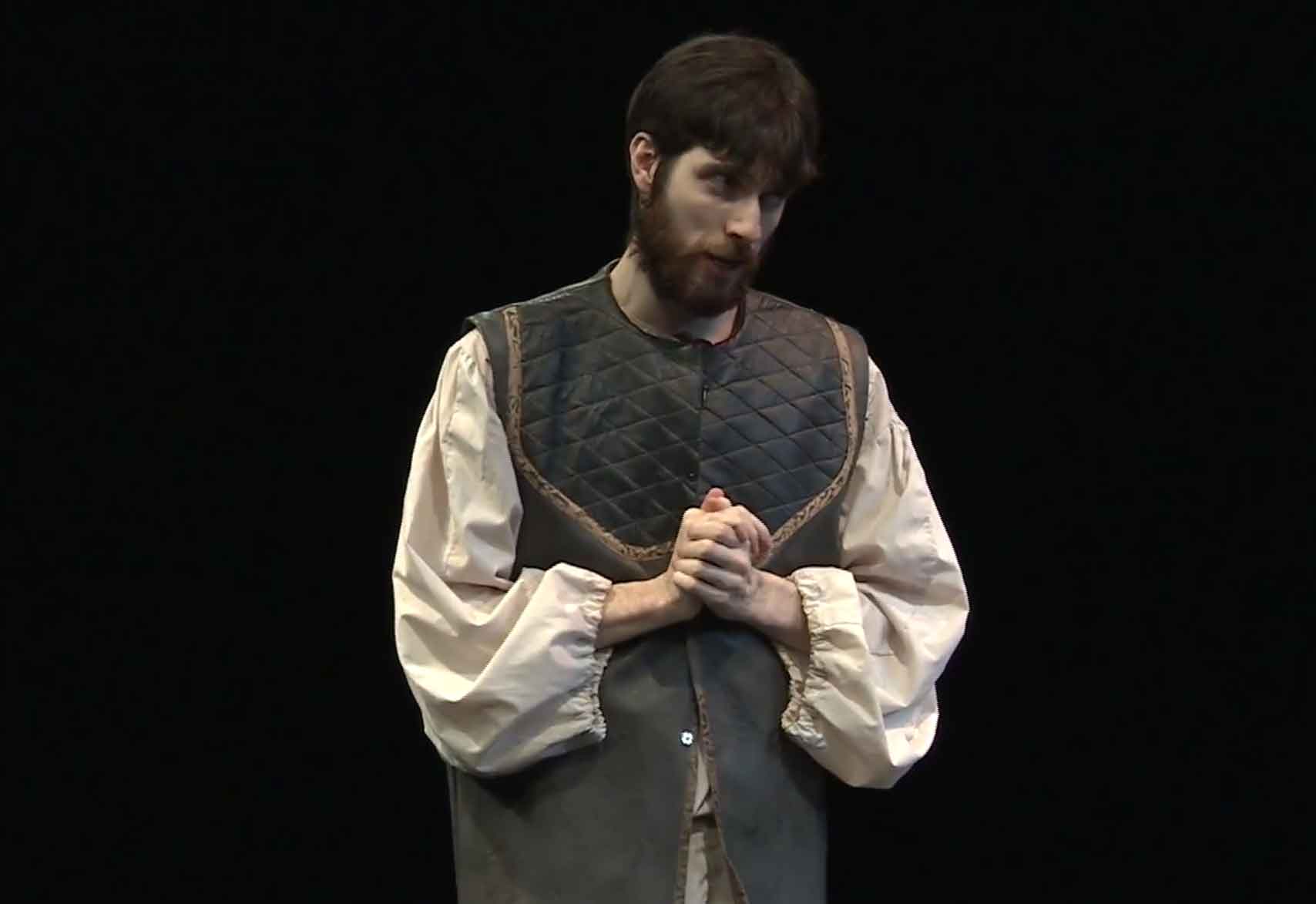
The occasion
We imagine the first formal presentation of part of Geoffrey Chaucer's new work (provisionally titled, it seems, "The Book of the Tales of Canterbury") as having taken place in the presence of Richard II and his queen at the King's court, on 6 June 1389, at Sheen Palace, London.
The Miller's Tale, from the Canterbury Tales (Geoffrey Chaucer)
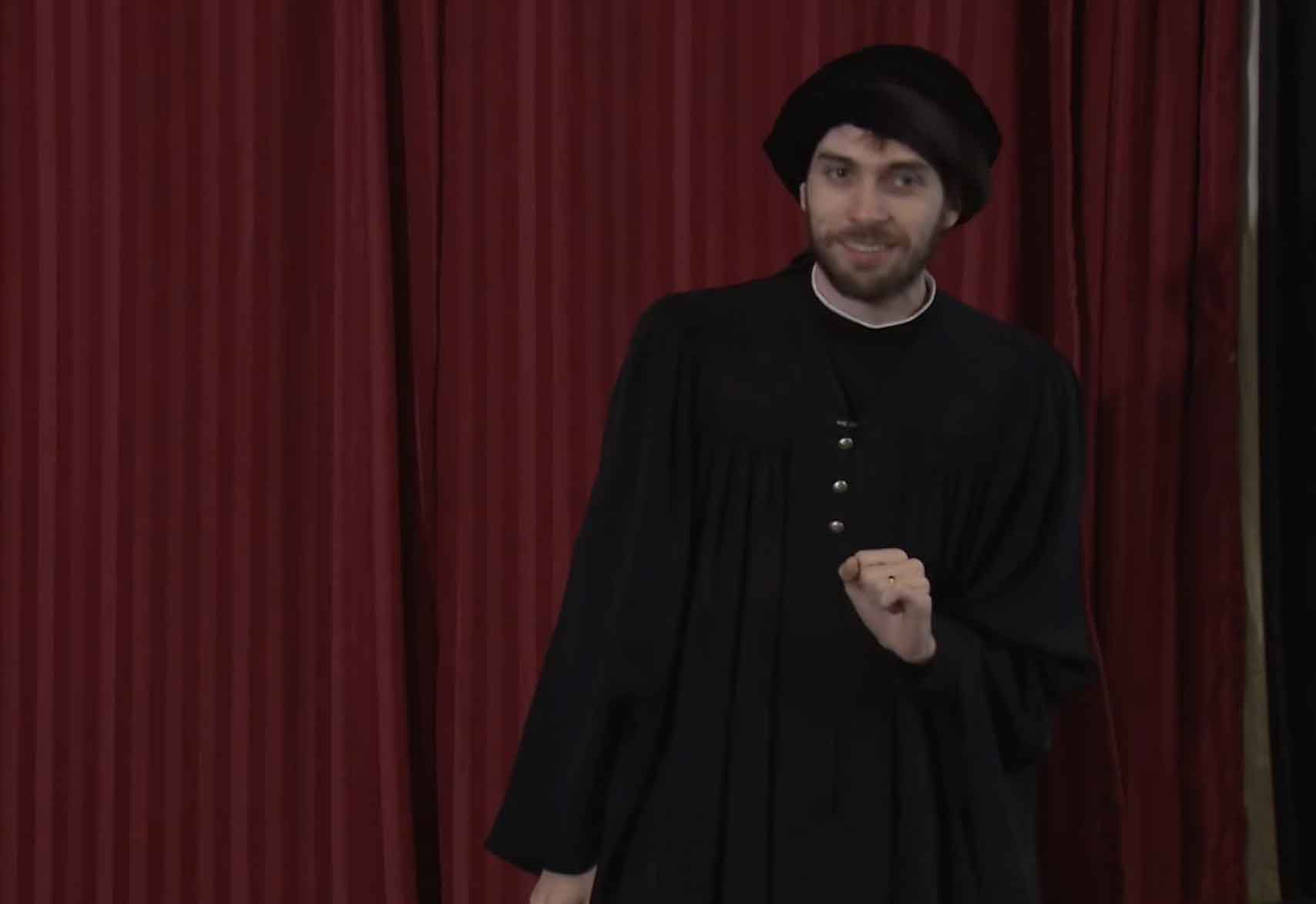
The occasion
We hypothesize that the Miller's Tale was one of the first parts of Geoffrey Chaucer's new work (provisionally titled, it seems, "The Book of the Tales of Canterbury") to have been written, some time after 1386 when Chaucer began work on the Tales. We suppose that Chaucer made occasional trips to London from Kent in the period between 1386 and 1389, where it seems he went to keep himself safe from the Lords Appellant. He might have met with his fellow poets in a pub, and one night at the pub performed the Miller's Tale for his friends.
The Nun's Priest's Tale, from the Canterbury Tales (Geoffrey Chaucer)
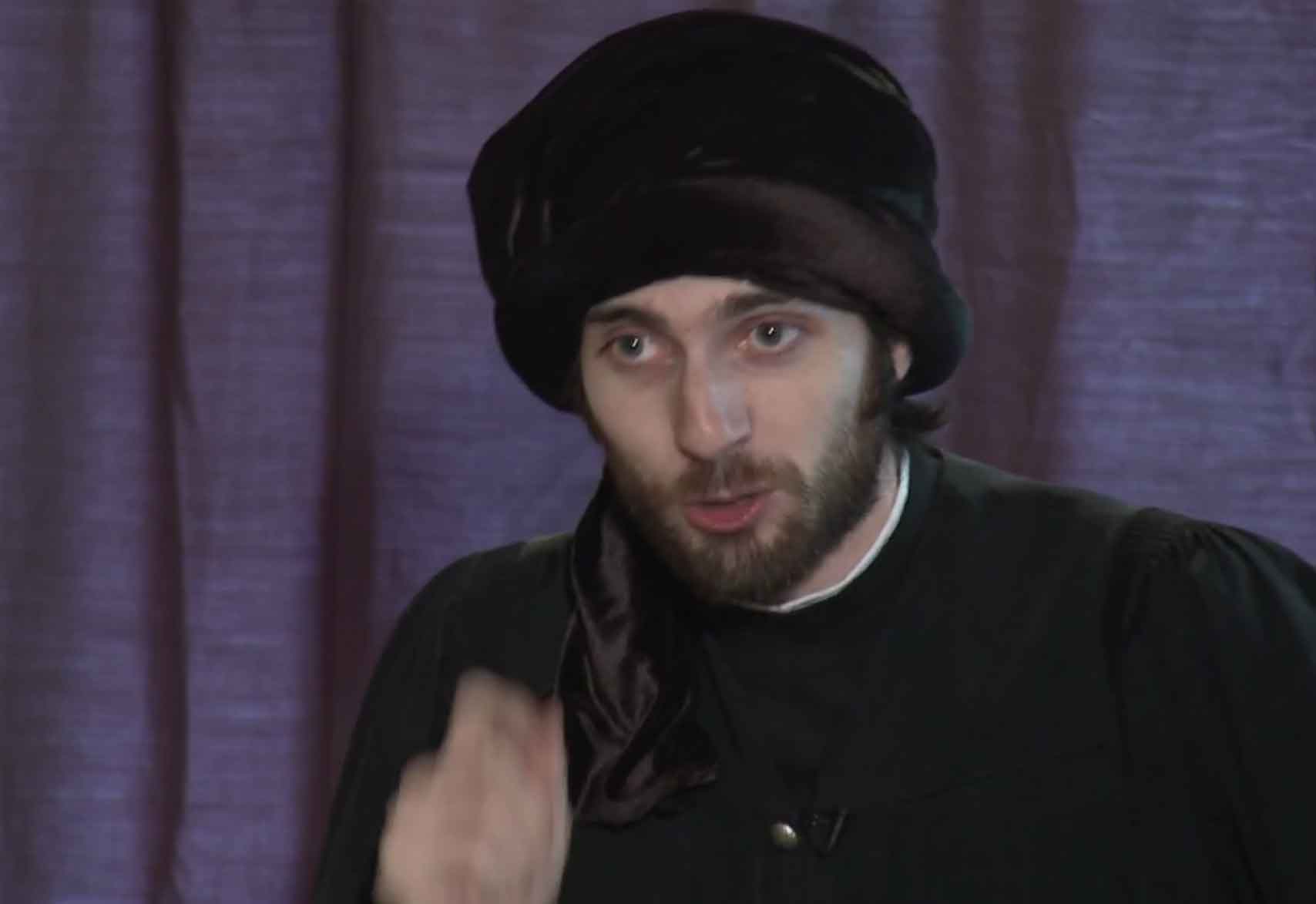
The occasion
It is five years since Richard took back power from the Lords Appellant (see the notes on the Miller's Tale), and five years since Chaucer returned to London as a holder of significant court posts. These were five years of peace, five years of remarkable cultural achievement. We presume that Chaucer returns to the Tabard Inn, to meet again with his fellow poets. By now, they have seen more of his new work, which we know as the Canterbury Tales, with its characteristic mix of the serious and the comic, and are curious for more.
The Death of Arthur, from the Morte Darthur (Thomas Malory)
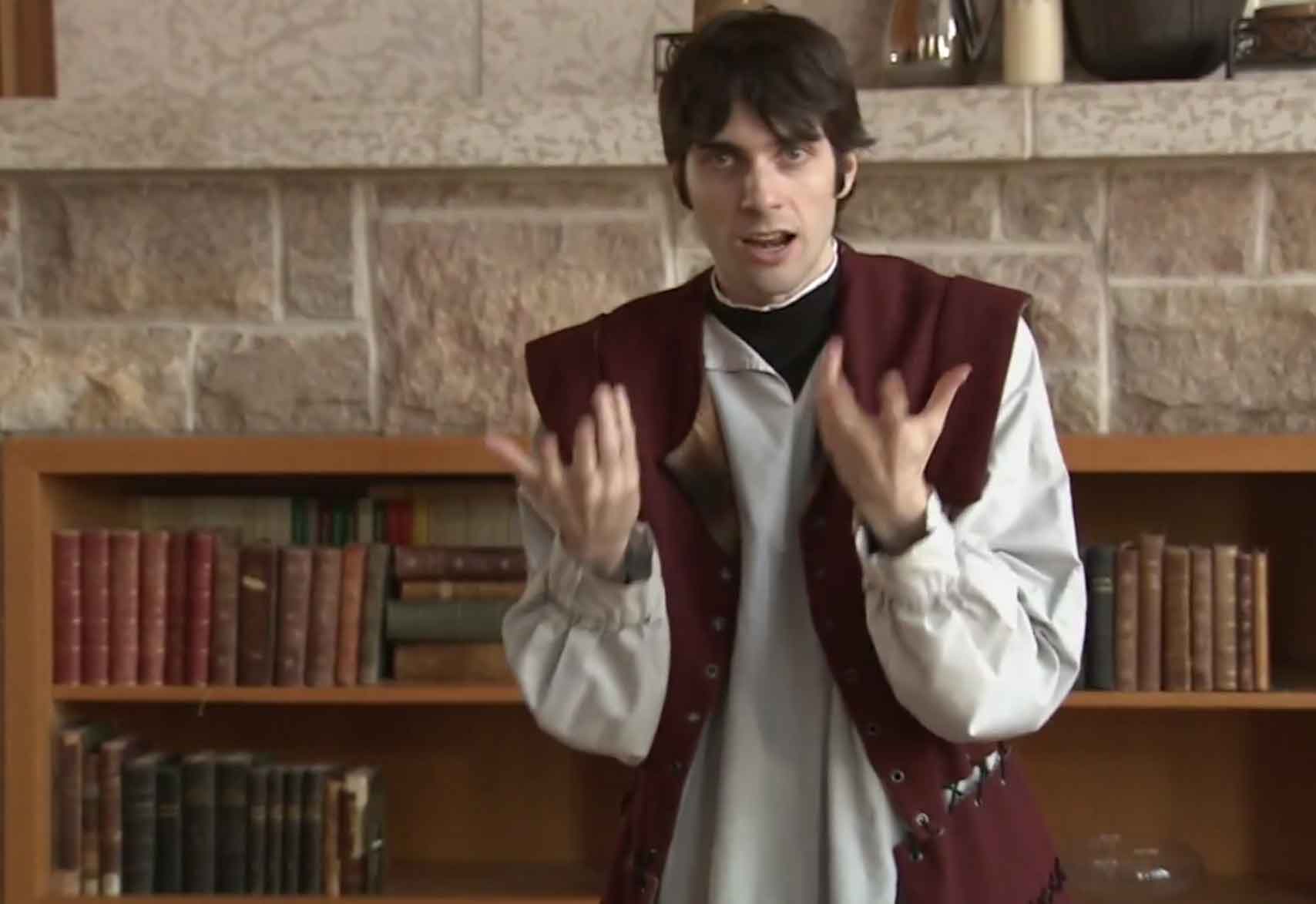
The occasion
We set this performance in the Manor of Newbold Revel, Warwickshire, in late 1470.
The Second Prebend Sermon (John Donne)
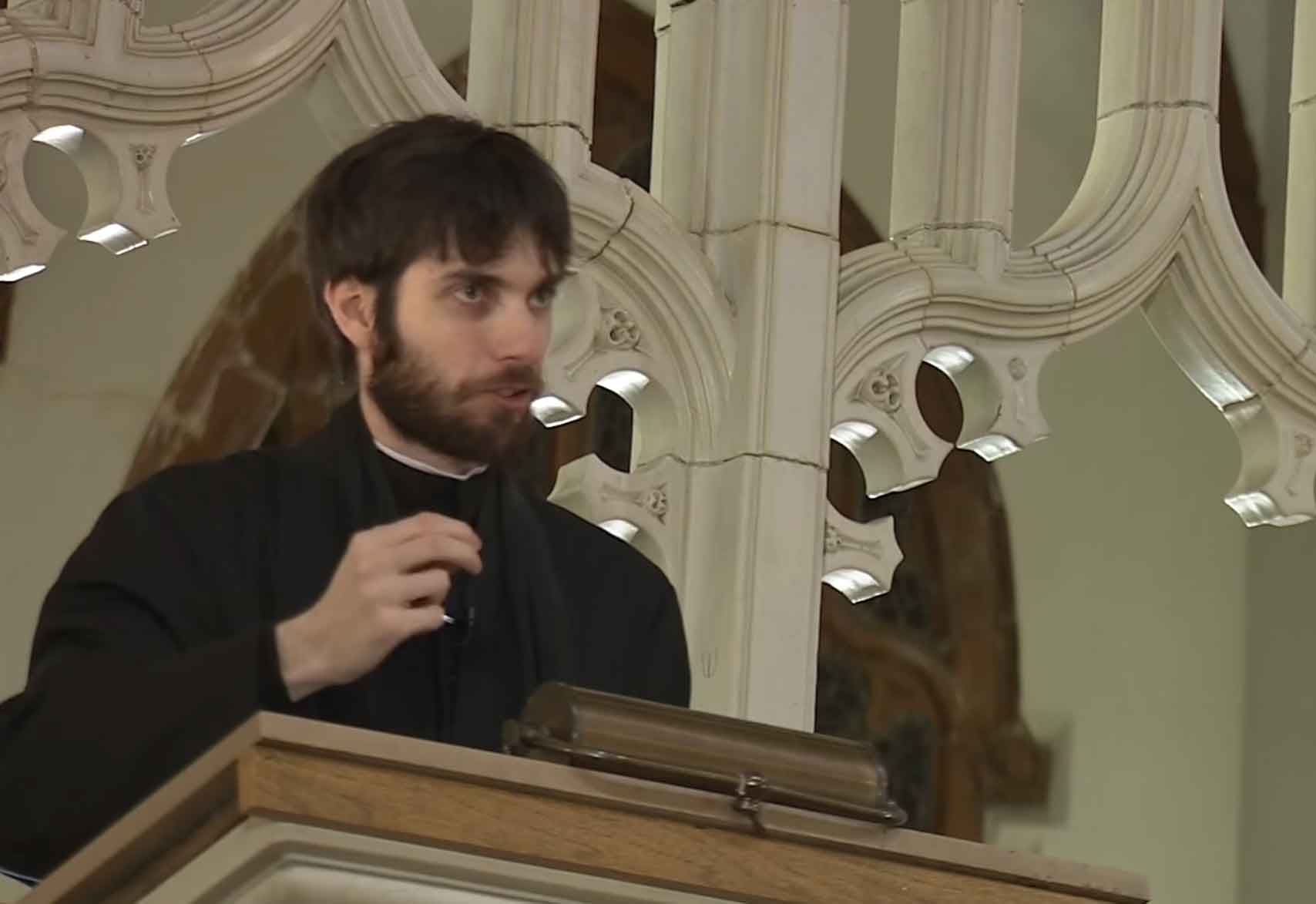
The occasion
Donne preached this sermon in St Paul's Cathedral on 29 January, 1626.
About these Performances
Who made these performances
The performances were initiated and directed by Peter Robinson (Chaucer), Brent Nelson (Donne) and Michael Cichon (Malory). Colin Gibbings was, in turn, Geoffrey Chaucer, Thomas Malory and John Donne. We are very grateful to these groups within the University of Saskatchewan for their support: the Department of English (which provided the intellectual motive, performers and material); the Media Production Unit (which made the videos); the Gwenna Moss Centre for Teaching Effectiveness (which provided a grant to pay for the filming through their Curriculum Innovation Fund.The license
All performances are made available for unlimited open access under a Creative Commons Free Cultural Work licence: formally "CC BY". We would appreciate you acknowledging the source of these videos in any use you make of them. Otherwise, you are free to republish them, excerpt them, recombine or edit them, in any way you wish.Using these videos in teaching
The "About" link above against each video will take you to a page of background information about the historical context supposed for each performance. The same page also contains a series of questions and hints for teachers and students for each video.Some hints for teachers who want to have students make their own performances
- For good performance, it is critical that the students MEMORIZE the piece they are going to present. Memorization is a skill that has gone out of fashion in an age of omnipresent memory substitutes. It is not enough just to be able to recite the piece. Complete memorialization means one can start at any point, stop, and restart somewhere else without pause; recite the lines backwards, etc. Performance cannot begin till memorization is complete! There are no short cuts.
- Ideally, at least one class should be taught by a specialist performance teacher (e.g. a member of the drama department). For typical english students who have never attended a drama class, this alone will be a revelation.
- One cannot explore the historical context too much. Who might have composed the piece, when, why, where? Where might it have been plausibly first presented? to whom, where, when, why?
- This exercise lends itself well to group work. Students may collaborate on a series of linked performances. Two (or more) students might present different parts of the one work, or perform dialogues, etc.
Here are performances made by members of Peter Robinson's 400 class on "Medieval texts in performance" in 2016, using the videos on this site as guidance.